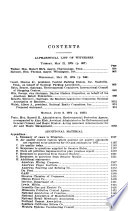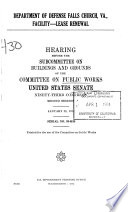 | Environmental law - 1974 - 660 pages
...described above, this legislation would clearly establish that no one has the right to pollute — that pollution continues because of technological...nation's waterways for the purpose of disposing of wastes. The program proposed by this Section will be implemented through permits issued in Section... | |
 | United States. Congress. Senate. Committee on Public Works - 1974 - 692 pages
...basic principle for dealing with water pollution must be that no one has the right to pollute-that pollution continues because of technological limits,...nation's waterways for the purpose of disposing of wastes. However, the impracticability of Immediately eliminating all pollution must also be recognized.... | |
 | United States. Congress. Senate. Committee on Public Works - Legislative hearings - 1974 - 662 pages
...basic principle for dealing with water pollution must be that no one has the right to pollute-that pollution continues because of technological limits,...nation's waterways for the purpose of disposing of wastes. However, the impracticability of immediately eliminating all pollution must also be recognized.... | |
 | United States. Congress. House. Committee on Interstate and Foreign Commerce - 1975 - 874 pages
...The basic principle for dealing with water pollution must be that no one has the right to pollute - that pollution continues because of technological...nation's waterways for the purpose of disposing of wastes. However, the impracticability of immediately eliminating all pollution must also be recognized.... | |
 | Water - 1977 - 250 pages
...process." And elsewhere: "This legislation would clearly establish that no one has the right to pollute, that pollution continues because of technological...Nation's waterways for the purpose of disposing of wastes." I don't think there is any doubt that Congress knew what it was about when these words were... | |
| |